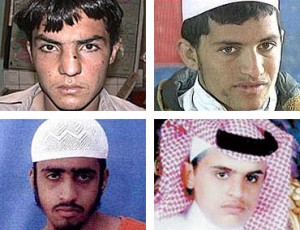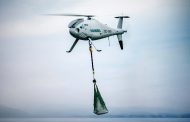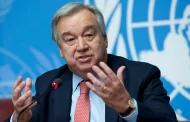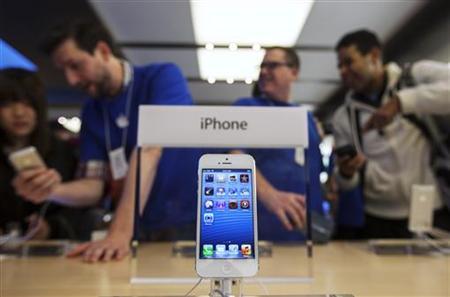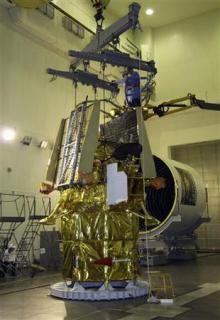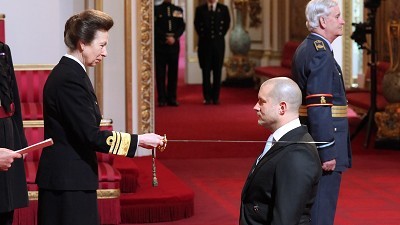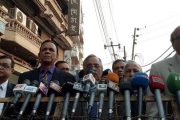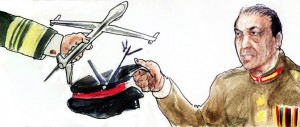 Secret internal American government cables, accessed by Dawn through WikiLeaks, provide confirmation that the US military’s drone strikes programme within Pakistan had more than just tacit acceptance of the country’s top military brass, despite public posturing to the contrary. In fact, as long ago as January 2008, the country’s military was requesting the US for greater drone back-up for its own military operations.
Secret internal American government cables, accessed by Dawn through WikiLeaks, provide confirmation that the US military’s drone strikes programme within Pakistan had more than just tacit acceptance of the country’s top military brass, despite public posturing to the contrary. In fact, as long ago as January 2008, the country’s military was requesting the US for greater drone back-up for its own military operations.
In a meeting on January 22, 2008 with US CENTCOM Commander Admiral William J. Fallon, Army Chief General Ashfaq Kayani requested the Americans to provide “continuous Predator coverage of the conflict area” in South Waziristan where the army was conducting operations against militants. The request is detailed in a ‘Secret’ cable sent by then US Ambassador Anne Patterson on February 11, 2008. Pakistan’s military has consistently denied any involvement in the covert programme run mainly by the CIA.
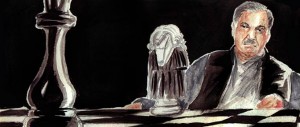 Even as PML-N chief Nawaz Sharif was rallying street support by publicly refusing to back down from demands for the restoration of Chief Justice Iftikhar Chaudhry in February and March 2009, the party was privately telling American diplomats that the future of the then-non-functional chief justice was up for negotiation.
Even as PML-N chief Nawaz Sharif was rallying street support by publicly refusing to back down from demands for the restoration of Chief Justice Iftikhar Chaudhry in February and March 2009, the party was privately telling American diplomats that the future of the then-non-functional chief justice was up for negotiation.
“Shahbaz stated that following the restoration, the PML-N was prepared to end the issue and remove Chaudhry once and for all,” reported Lahore Consulate Principal Officer Bryan Hunt in a secret American diplomatic cable describing his meeting with the younger Sharif on March 14, 2009.
“On the issue of former Chief Justice Iftikhar Chaudhry, Shahbaz claimed that the PML-N was open to negotiation, provided that Chaudhry was symbolically restored.”
The conversation took place just a day before Nawaz Sharif would join a lawyers’ long march in a dramatic public protest for the reinstatement of judges deposed by Gen Musharraf, a demand that President Zardari had been resisting. In private, however, a different story was being told.
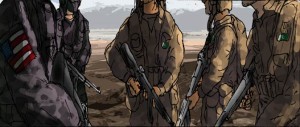 Confidential American diplomatic cables obtained by Dawn reveal new details about the activities of US forces on the ground in Pakistan, an issue that has gained heightened sensitivity in the aftermath of the Raymond Davis incident in Lahore and the American raid on Osama bin Laden’s compound in Abbottabad.
Confidential American diplomatic cables obtained by Dawn reveal new details about the activities of US forces on the ground in Pakistan, an issue that has gained heightened sensitivity in the aftermath of the Raymond Davis incident in Lahore and the American raid on Osama bin Laden’s compound in Abbottabad.
The reports reveal that US special operations forces were embedded with Pakistani troops for intelligence gathering by the summer of 2009 and deployed with them on joint operations in Pakistani territory by September that year.
“We have created Intelligence Fusion cells with embedded US Special Forces with both SSG and Frontier Corps (Bala Hisar, Peshawar) with the Rover equipment ready to deploy,” reported then US Ambassador Anne Patterson to the State Department in May 2009. “Through these embeds, we are assisting the Pakistanis collect and coordinate existing intelligence assets.”
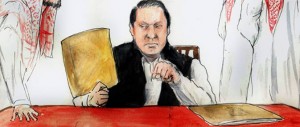 Former prime minister Nawaz Sharif “thought he might be arrested” upon his return to Saudi Arabia after deportation from Pakistan on Sept 10, 2007, but Prince Muqrin, Head of General Intelligence Presidency, Saudi Arabia, gave Sharif “two options – he could either stay at a palace that had been prepared for him, or at his home. He opted to go to his home.”
Former prime minister Nawaz Sharif “thought he might be arrested” upon his return to Saudi Arabia after deportation from Pakistan on Sept 10, 2007, but Prince Muqrin, Head of General Intelligence Presidency, Saudi Arabia, gave Sharif “two options – he could either stay at a palace that had been prepared for him, or at his home. He opted to go to his home.”
The candid behind-the-scenes details of Mr Sharif’s return to exile in Saudi Arabia shared by Prince Muqrin with the US Ambassador to Saudi Arabia, Ford M. Fraker, are documented in a secret cable from the US consulate in Jeddah on Sept 12, 2007.
“During Ambassdor Fraker’s meeting with Prince Muqrin, the Prince first summarised the ten-year agreement, brokered by Rafik Hariri, under which Sharif would live in Saudi Arabia and refrain from participating in Pakistani politics. He added that there was a verbal agreement that after five years, they would hold negotiations to consider reducing that ten year period,” according to the secret cable.
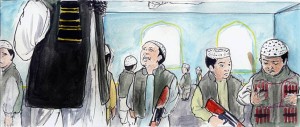 A US official in a cable sent to the State Department stated that “financial support estimated at nearly 100 million USD annually was making its way to Deobandi and Ahl-i-Hadith clerics in south Punjab from organisations in Saudi Arabia and the United Arab Emirates ostensibly with the direct support of those governments.”
A US official in a cable sent to the State Department stated that “financial support estimated at nearly 100 million USD annually was making its way to Deobandi and Ahl-i-Hadith clerics in south Punjab from organisations in Saudi Arabia and the United Arab Emirates ostensibly with the direct support of those governments.”
The cable sent in November 2008 by Bryan Hunt, the then Principal Officer at the US Consulate in Lahore, was based on information from discussions with local government and non-governmental sources during his trips to the cities of Multan and Bahawalpur.
Quoting local interlocutors, Hunt attempts to explain how the “sophisticated jihadi recruitment network” operated in a region dominated by the Barelvi sect, which, according to the cable, made south Punjab “traditionally hostile” to Deobandi and Ahl-i-Hadith schools of thought.
 A week before the 2008 elections, former PPP Co-Chairperson Asif Zardari was asking General Pervez Musharraf’s National Security Adviser Tariq Aziz for “advice” on “who should be prime minister if the PPP were asked to form the government.” These and other fresh insights are provided from previously unpublished US diplomatic cables about what the American ambassador once termed the “increasingly ugly” tussle within the ruling party for the prime ministerial slot immediately before and after the 2008 elections.
A week before the 2008 elections, former PPP Co-Chairperson Asif Zardari was asking General Pervez Musharraf’s National Security Adviser Tariq Aziz for “advice” on “who should be prime minister if the PPP were asked to form the government.” These and other fresh insights are provided from previously unpublished US diplomatic cables about what the American ambassador once termed the “increasingly ugly” tussle within the ruling party for the prime ministerial slot immediately before and after the 2008 elections.
The query from Zardari for Aziz is documented in a cable dated Feb 16, 2008 from then US Ambassador Anne Patterson who was told by Aziz a day earlier that he had met with Zardari twice in the past four days. At that time the former NSA, along with ISI Director Gen Nadeem Taj were trying to dissuade Zardari from seeking the PM slot for himself and to support PPP Senior Vice President Makhdoom Amin Fahim.
 “The police are only one of several armed groups and probably not the most numerous or best equipped,” according to a secret assessment of the ‘The Gangs of Karachi’ by then US consul general Stephen Fakan in April 2009.
“The police are only one of several armed groups and probably not the most numerous or best equipped,” according to a secret assessment of the ‘The Gangs of Karachi’ by then US consul general Stephen Fakan in April 2009.
The assessment focuses on the Pakistan People’s Party, Muttahida Qaumi Movement, Awami National Party, Muhajir Qaumi Movement (H), Sunni Tehreek and “Pashtun terrorists”, besides some armed gangs operating in Lyari and other parts of this megapolis. It states that “the PPP’s decision to include MQM in coalition governments in Sindh and at the centre has helped preclude a return to the PPP-MQM violence of the 1990s. But the potential for MQM-ANP conflict is growing as Pashtuns challenge Muhajir political dominance and vie for control of key economic interests, such as the lucrative trucking industry.
“Any sign that political violence is returning to Karachi, especially if it is related to the growing strength of conservative Pashtun ‘Taliban’, will send extremely negative shockwaves through the society and likely accelerate the flight from Pakistan of the business and intellectual elite of the society,” the report says.
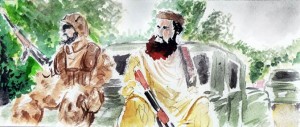 In a meeting with an American diplomat in July 2009, ANP leader Senator Afrasiab Khattak claimed that the Haqqani network, a militant group the US holds responsible for multiple attacks against coalition forces in Afghanistan, was being protected by the Pakistan military.
In a meeting with an American diplomat in July 2009, ANP leader Senator Afrasiab Khattak claimed that the Haqqani network, a militant group the US holds responsible for multiple attacks against coalition forces in Afghanistan, was being protected by the Pakistan military.
The report is one of a number of American diplomatic cables obtained by Dawn that reveal a deep mistrust among the leadership of the ANP, the party responsible for governance in Khyber Pakhtunkhwa, about the military’s intentions regarding various militant groups in KP and FATA.
“Khattak described the Pakistani military as treating the Haqqanis ‘separately’ … from other militants,” reported Lynne Tracy, the Principal Officer at the US Consulate in Peshawar. “The Haqqani family, [Khattak] observed, has already moved out of North Waziristan.
“Part of the family, he said, is living in a rented house on the Kohat Road on the southern side of Peshawar. The other half is living in a house owned by the Haqqani family in the Rawalpindi cantonment.”
 PPP Co-Chairperson Asif Zardari told US Ambassador Anne W. Patterson a day after signing the Murree Declaration with PML-N head Nawaz Sharif that he and Mr Sharif “had agreed (very privately)” that Chief Justice Iftikhar Chaudhry would not be restored but that he was worried about the optics of the jurist`s continued detention. He also told her he had already reassured the then incumbent CJ Abdul Hameed Dogar that he need not worry about the Declaration.
PPP Co-Chairperson Asif Zardari told US Ambassador Anne W. Patterson a day after signing the Murree Declaration with PML-N head Nawaz Sharif that he and Mr Sharif “had agreed (very privately)” that Chief Justice Iftikhar Chaudhry would not be restored but that he was worried about the optics of the jurist`s continued detention. He also told her he had already reassured the then incumbent CJ Abdul Hameed Dogar that he need not worry about the Declaration.
The Murree Declaration, signed on March 9, 2008 was touted as a big breakthrough for parliamentary cooperation between the two major winners of the February elections. Its primary clause related to the agreement to restore within 30 days all the judges removed under Gen Pervez Musharraf`s November 3 Emergency proclamation.
The revelations about Mr Zardari`s interpretations of the Murree Declaration and his political game-playing are contained in a previously unpublished confidential diplomatic cable dated March 10, 2008 sent to Washington by Ms Patterson. She had called on Mr Zardari on the same day “to get his version of the `deal`” with Mr Sharif.
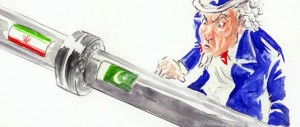 A US State Department official in a meeting urged President Asif Ali Zardari against accepting Iran’s offer of concessional oil for Pakistan and providing Iran with a foothold in Pakistan, a ‘Secret’ American diplomatic cable made available to Dawn reveals.
A US State Department official in a meeting urged President Asif Ali Zardari against accepting Iran’s offer of concessional oil for Pakistan and providing Iran with a foothold in Pakistan, a ‘Secret’ American diplomatic cable made available to Dawn reveals.
The meeting between Richard Boucher, US Assistant Secretary of State for South and Central Asia during the Bush administration, and President Zardari took place on October 18, 2008 at the Aiwan-e-Sadr, during which Mr Zardari apprised the visiting official of the Iranian offer that the President “did not believe he could refuse.”
“How could he go to the National Assembly and tell them Iran had offered the assistance and Pakistan had turned it down, he asked rhetorically,” the then US Ambassador to Pakistan Anne W. Patterson wrote in the cable dated October 22, 2008, referring to President Zardari. She added that, “Boucher reminded him of Ambassador Haqqani’s recent conversation with Deputy Secretary Negroponte in which the Deputy cautioned against providing Iran with a toehold in Pakistan.”
The cable illustrates how US officials tried influencing Pakistan’s policy not only with regard to Iran but also indicates how and with whom Pakistan had been dealing with at the time in order to meet its energy requirements. The American caution about Irani oil is consistent with the US government’s efforts to isolate Iran both militarily and economically.
Some of the leading stories that stunned Pakistan and the world since the Dawn Media Group decided to open Pandora’s Box – Wikileaks’ Pakistan Papers. – Illustrations by Faraz Aamer/Dawn.com
Its WiKie-News®







